About Urinary Disorders
There are several types of urinary disorders that can affect bladder control. Urinary incontinence caused by a disorder can be distressing to your quality of life. At Caring Center for Women, we provide treatment for all types of urinary incontinence. Women of all ages come into our office in New Braunfels, TX to discuss why they are experiencing this. When you first start to experience urinary incontinence, you may brush it off as a side effect of a urinary tract infection or a temporary problem. However, when you realize that the problem isn't going away, it is time to see a doctor. There can be many reasons why this is occurring and there be an underlying medical problem in or surrounding the bladder.
In women with stress urinary incontinence, pelvic muscles and tissue have caused the bladder and urethra to relax from their normal positions. As a result, sudden abdominal pressure from coughing, sneezing, laughing, jumping, or simply lifting can cause accidental loss of urine. Muscles and tissue often are weakened by the following:
- Age
- Poor diet
- Foods that aggravate the bladder (diuretics, caffeine, alcohol, spicy foods)
- Pregnancy stress in the body
- Vaginal delivery in childbirth
- Excess weight
- After having a hysterectomy
- Physical activity that puts stress or pressure on the pelvic area
- Smoking
- Family history
- Other medical conditions and medications
There are four separate types of incontinence issues we treat at the Caring Center for Women: urge, stress, overflow, and functional incontinence. You may be experiencing a combination of the four types, which is called mixed incontinence.
Symptoms of urinary disorders
We can provide you with a diagnostic test called "urodynamics" to evaluate your urinary leakage. This is a test we do in the office to measure the pressure in your bladder before and after it is filled. We will test for the following:
Urge Incontinence
Urge incontinence involves an intense urge to urinate followed by a loss of urine. This typically results in the need to urine more often then normal. There are several causes that can lead to urge incontinence, including infection, a neurologic condition, or diabetes.
Stress Incontinence
Stress incontinence is due to the poor closure of the bladder. This creates leakage when any amount of pressure is applied to the bladder, such as when coughing, sneezing, laughing, or exercising.
OVERFLOW INCONTINENCE
Overflow incontinence occurs when the bladder does not fully release itself. This can cause undesired dribbling and urine leakage.
FUNCTIONAL INCONTINENCE
Functional incontinence occurs when a physical or mental impairment affects your ability to make it to the toilet in time.
Reviews
Treatment Options
At the Caring Center for Women, we offer a variety of options to treat the symptoms of UI, such as:
Lifestyle changes
- Having a healthy diet that does not inflame the bladder
- Losing excess weight to take pressure off of the bladder
- Scheduling regular, light to moderate exercise (without putting pressure on the pelvic area)
- Managing fluid intake by limiting drinks in the evening for fewer bathroom trips
- Retraining yourself to go to the bathroom before having the urge to urinate.
- Wearing absorbent pads or adult diaper in the event of leakage or urinary accident
Therapies
- Performing Kegels and physical therapy exercises for the pelvic floor
- Taking prescription medications for UI symptoms (anti-cholinergics, anti-diuretics, anti-spasmodics, and tricyclic antidepressants)
- Stimulating the nerves in the area with Axonics Therapy nerve stimulation
Pessary inserts
Surgeries
- Mid-urethral mesh sling
- Fascial/bladder neck sling
- Burch or Marshall Marchetti Krantz colposuspension procedure
- Urethral bulking-agent injections
Other Considerations
We offer Axonics Therapy technology to treat the symptoms associated with a urinary disorder and urinary incontinence that involves gentle stimulation of the nerves that control the bladder and bowel. Axonics Therapy placement is a surgical procedure, that may need to be adjusted or modified in the future. One of our doctors will discuss with patients about all treatment options, before suggesting Axonics Therapy to treat urinary incontinence.

Let's Regain COntrol
Urinary disorders can cause several symptoms, but urinary incontinence can be one of the most inconvenient and embarrassing. At Caring Center for Women, we can help you regain control of your bladder and decrease the amount of time you spend in the bathroom. To learn more, contact our New Braunfels, TX office to schedule a consultation.




